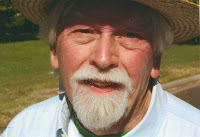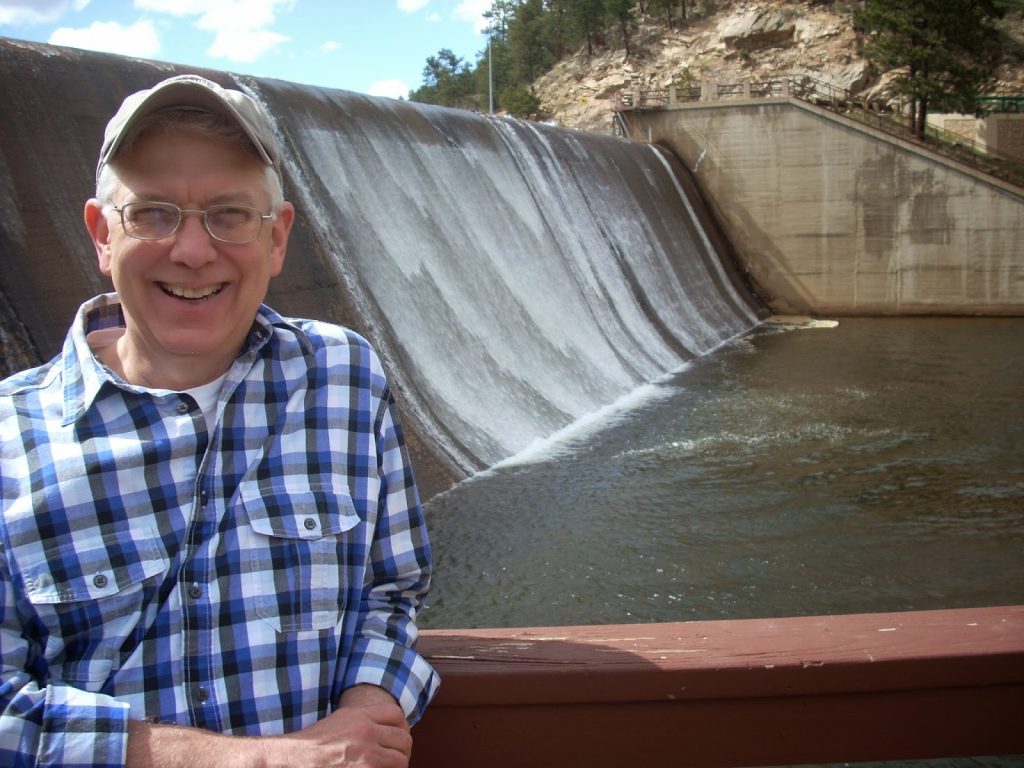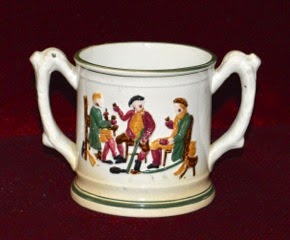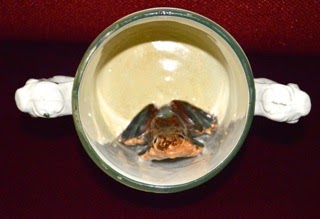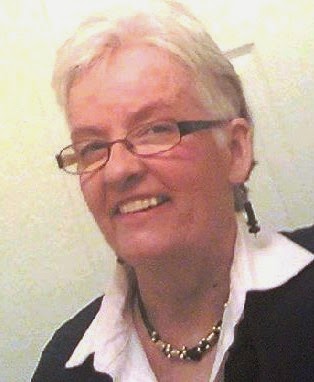There are some things that a man who
has carried a weapon into battle never shares with others, keeping it confined
perhaps out of fear that to unlock it from his soul will unleash a tragic truth
about himself.
When I was a about ten, my uncle, a
veteran who had lost his innocence in World War II and later in the Korean War,
took me to see Pork Chop Hill, an
enactment of a battle fought during the Korean conflict. I hated the savagery,
the brutal, bestial violence. I emerged from the theater angry at my uncle for exposing
me to such a film, one that I later realized had a potential to leave
psychologically scars. It wasn’t until I learned to think like an adult that I
realized that my uncle, who never ever spoke of the carnage and butchery he, no
doubt, had experienced, had attempted to share with me his painful past, a
secret he could never entrust to an
adult. In retrospect, I understood why over time he chose to drink himself to
death. As for my biological father, who also fought in the Pacific front during
the Second World War, he too never ever spoke of his experiences as a sailor
out at sea. When he returned from action on the frontline, he floundered
aimlessly, angrily. Years later, he married my pregnant mother a day shy of my
birth, no doubt in a guilt-ridden attempt to legitimize me, and maybe himself.
When my mother died, at her request, he summarily relinquished me to his
parents. I can only imagine what goes on in a woman’s mind when she cannot
trust her child to his father. Though I would meet with him on occasion when I
was growing up, I hated those awkward, silent moments, punctuated with heated rants.
He was so temperamental, so unrefined, that I subconsciously decided to slough
off any residual part of him, endeavoring to be everything he never was. Again,
it wasn’t until later that I learned compassion, recognizing that the ghosts of
his past haunted him every moment of his life. I haven’t heard of him in years.
When I last saw him, he was a frail, disappointed man; who knows, perhaps he
has finally found peace in death. Interestingly, I learned only a couple of
years ago, quite by accident that I was named Carlos after my uncle; as for my
middle name, Manuel, I also learned it is my father’s middle name. Thus, as a
symbol of new beginnings and hopes, I bore the names of two men who shared a
common core, a source I too would someday encounter. As for the parents who
raised me, being that they were undocumented Americans, they felt more
comfortable cocooned in the Spanish-speaking barrios of west Texas.
Nevertheless, believing in the American dream and realizing that their two sons
had had little choice of a future, all their dreams were placed upon me
becoming an educated man, a man who could pick from the sweetest fruit on the
tree. They never attempted to dissuade me from what in retrospect were obvious
gay inclinations, my poetic nature, my love of gardening and cooking, my
relative lack of male-centered interests. I was never cautioned to be anything
but myself, the antithesis of what my uncle and father had been, products of a
war-burdened society. No doubt, they
must have been devastated when I was drafted during the conflagration of
another war. I considered only briefly the thought of dodging the draft by
declaring my homosexuality, that aberration that was still viewed with disgust
but which would have provided me with a different hand with which to play.
Instead, I answered the call to duty, mostly out of a misguided belief that to
fail to answer was inconceivable to the men in my family. Thus, once again, my
parents managed to bestow a blessing to another son whose destiny was thwarted
by a different war where young men were sacrificed for old, rich men’s egos. My
parents’ only solace was that God would be merciful and that their prayers to
the saint-of-the-month would be answered as they had been answered before.
However, the practical joke was on them since each son returned transformed by the
cesspools in which he had trudged. To this day, I am very selective of sharing the
details of the endless nights holding onto the earth out of fear that if I
didn’t, she would gather me in an intimate embrace. Suffice to say, that I proved
myself as an American, perhaps more so than some, regardless of whether I wash
my face or not.
During basic training at Fort Ord on
the Monterey Peninsula in California, I learned to meditate, to embrace my
surroundings even as I was transformed into a hesitant warrior. By encasing
myself into my poetic chrysalis, I sought to keep my keel intact, ensuring that
I would not lose myself as my uncle and father had a generation before. I
followed the rules of the game, practicing at playing soldier while nurturing a
yet indefinable core within me. We were frightened young men, a microcosm of an
America of the time seething with rage due to inequities of race and class.
Most of us suspected, though we never admitted, we were fodder cast into the fire
pit, expendable. Some, a few courageous souls I prefer to believe, chose to
swallow spit and reject the attempt to mold them into combatants. Of course,
I’ll never know whether they were self-actualized men who chose to act on their
convictions or defeated boys who weren’t up to the task. Regardless, they were
summarily dishonorably discharged. For days before their departure, however, they
were made to sit in front of the barracks facing the platoon in formation
before them as though they were on trial for crimes against humanity; it was
part of the psychological charade to which they, and we, were subjected. It was
an attempt to portray them as pathetic, emasculated boys unworthy of another’s
compassion. Nevertheless, I would look at them with respect, acknowledging that
every path has a puddle. When we were compelled to run with full gear, to the
point that I felt my chest heaving with pain, but didn’t want to be singled out
as the runt of the litter, I would look at the thick carpet of invading ice
plant thriving on the sand dunes and find solace in the tenacity of their being,
and I would keep running. When instructed on how to use the M-16, I would cast
glances across the bay and its icy waters and remind myself that someday I
would have to wade into the ocean to be restored. And when I was compelled to listen
to marching chants pregnant with vile racist words in an attempt to dehumanize
the VC, I prayed we’d all be forgiven.
Years later, upon completion of my
tour of duty, I returned back home to Texas. On the bus home, ironically I was
asked for my identity papers by an immigration inspector in New Mexico in spite
of my being in full dress military uniform. I guess, my face was still a little
dirty. Later, my fellow veterans and I were stigmatized by some of our
countrymen as rapists, My Lai baby killers, addicts, and pawns of the
establishment. Thus, I chose to silence my voice and deny my past. I managed not
only to survive but to thrive in spite of those moments and the moments that
followed. Because I was gay, a poet, a former soldier, I learned from fallen
warriors before me. Unlike my uncle, I’ve never been self-destructive; unlike
my father, although I have my moments of melancholy, I am essentially whole.
And unlike my parents, I don’t hold my hands in my lap and ask the saints to
intervene when a force larger than myself confronts me. I discovered it is
easier to control the amount of salt that goes into a dish than to try to scoop
it out when the dish is oversalted. I’ve learned that though there are some
things a man who has carried a weapon into battle never shares with another, he
must find the resolve which can only come from within himself to approach those
time bombs and diffuse them, thus turning the tables on the practical joke of
fate.
©
November, 2015, Denver
About the Author

Cervantes wrote, “I know who I am and who I may choose to be.” In spite of my constant quest to live up to this proposition, I often falter. I am a man who has been defined as sensitive, intuitive, and altruistic, but I have also been defined as being too shy, too retrospective, too pragmatic. Something I know to be true. I am a survivor, a contradictory balance of a realist and a dreamer, and on occasions, quite charming. Nevertheless, I often ask Spirit to keep His arms around my shoulder and His hand over my mouth. My heroes range from Henry David Thoreau to Sheldon Cooper, and I always have time to watch Big Bang Theory or Under the Tuscan Sun. I am a pragmatic romantic and a consummate lover of ideas and words, nature and time. My beloved husband and our three rambunctious cocker spaniels are the souls that populate my heart. I could spend the rest of my life restoring our Victorian home, planting tomatoes, and lying under coconut palms on tropical sands. I believe in Spirit, and have zero tolerance for irresponsibility, victim’s mentalities, political and religious orthodoxy, and intentional cruelty. I am always on the look-out for friends, people who find that life just doesn’t get any better than breaking bread together and finding humor in the world around us.




